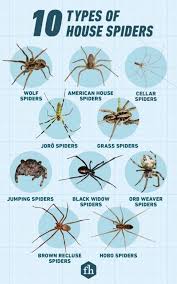A Comprehensive Guide to House Spiders

The Importance of House Spiders
House spiders are a common sight in many households across the UK. Understanding these creatures is important not just for managing their presence in our homes but also for recognising their role in maintaining ecological balance. Despite their often-unwanted reputation, house spiders contribute significantly to controlling pest populations, acting as natural pest controllers.
Types of House Spiders
In the UK, common house spiders include the Tegenaria domestica, known for its distinctive long legs and brownish colour, and the Parasteatoda tepidariorum, or the common house spider. They are often seen weaving webs in corners of rooms, basements, and attics, where they trap insects for food.
Behaviour and Lifecycle
House spiders typically thrive in warm, dry environments where they can find ample food sources. Their lifecycle begins when females lay eggs, often encapsulated in a protective sac. Depending on the species and environmental conditions, the lifespan of a house spider can range from one to two years. The presence of older spiders often indicates a stable food supply in the area.
Benefits of House Spiders
While many may be eager to eliminate spiders from their homes, it’s important to consider their benefits. House spiders consume a variety of unwanted pests, including flies and moths. By managing insect populations, they can inadvertently reduce the likelihood of disease that may be transmitted by these insects.
Managing House Spiders
For those who prefer to keep spiders at bay, several non-lethal methods can be employed. Regular cleaning and decluttering can reduce spider habitats, while sealing cracks and crevices in walls and windows can lessen entry points. Natural repellents made from essential oils are known to deter spiders without harming them.
Conclusion
In conclusion, house spiders play an integral role in our ecosystems, helping manage pest populations effectively. While their presence in our homes can be unsettling for some, understanding their behaviour and benefits can help reduce fear and promote coexistence. As natural pest controllers, they serve as a reminder of the intricate balance of life within our living spaces. Rather than exterminating these creatures, adopting a compassionate approach can lead to a healthier environment for both humans and spiders.









